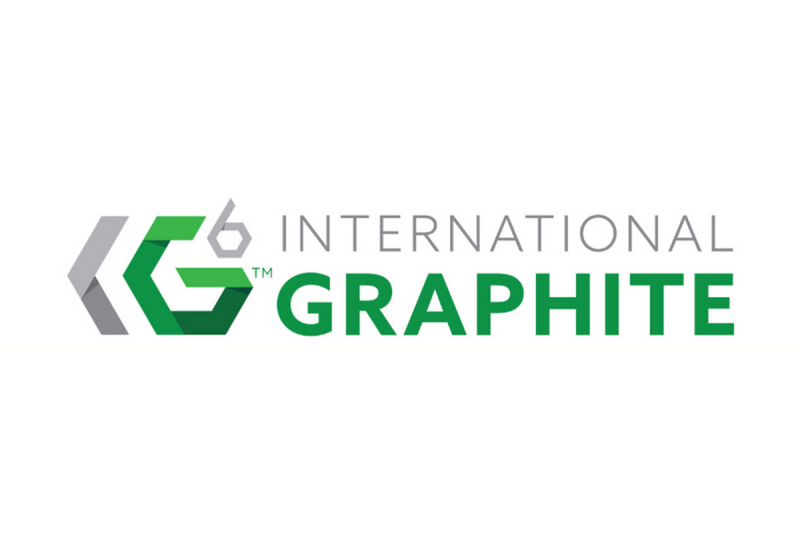
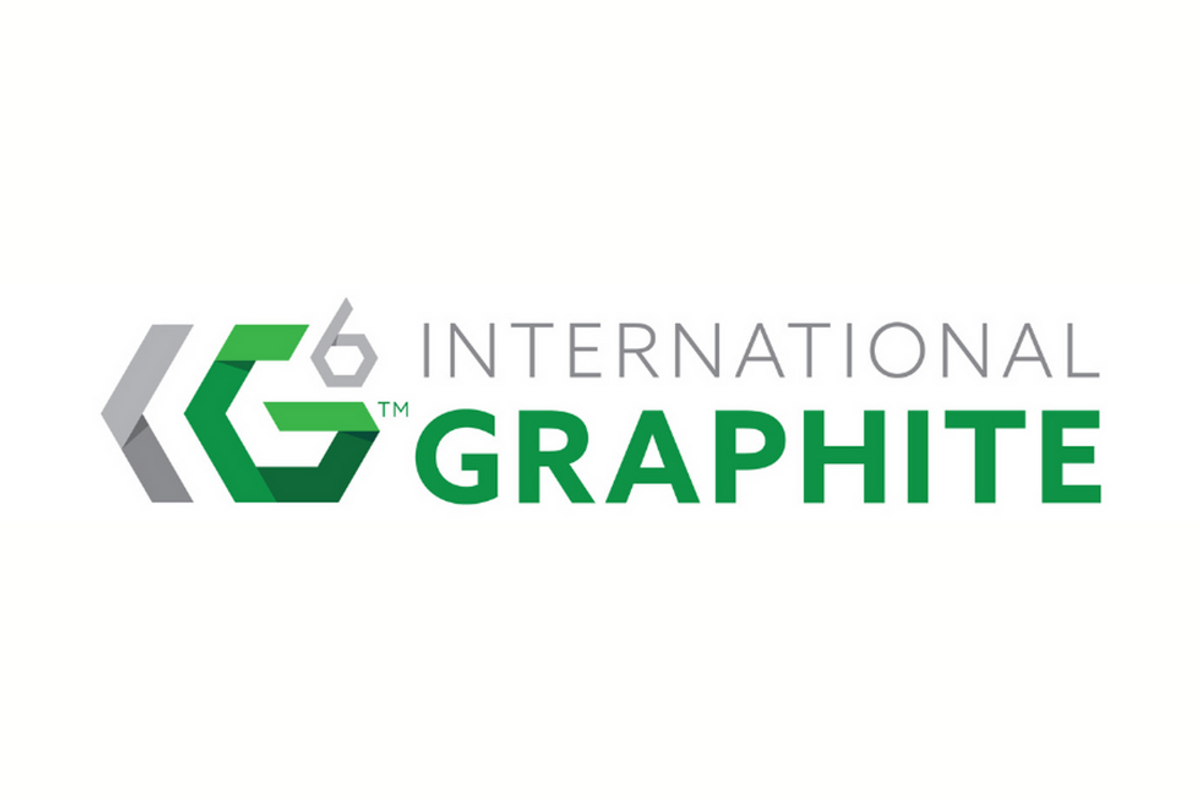 International Graphite (IG6:AU) has announced Agreement to develop new Expandable Graphite facility
International Graphite (IG6:AU) has announced Agreement to develop new Expandable Graphite facility
Download the PDF here.

 International Graphite (IG6:AU) has announced Agreement to develop new Expandable Graphite facility
International Graphite (IG6:AU) has announced Agreement to develop new Expandable Graphite facility
Download the PDF here.

 Radiopharm Theranostics (RAD:AU) has announced RAD receives IND approval from US FDA for Betabart (RV-01)
Radiopharm Theranostics (RAD:AU) has announced RAD receives IND approval from US FDA for Betabart (RV-01)
Download the PDF here.

 Greenvale Energy (GRV:AU) has announced Maiden Drill Program Commences at Oasis Uranium Project
Greenvale Energy (GRV:AU) has announced Maiden Drill Program Commences at Oasis Uranium Project
Download the PDF here.

 Asara Resources (AS1:AU) has announced Asara raises $25m to accelerate exploration at Kada
Asara Resources (AS1:AU) has announced Asara raises $25m to accelerate exploration at Kada
Download the PDF here.


Rapid Critical Metals Limited (‘Rapid,’ ‘RCM’ or ‘Company’) is pleased to advise that the Company has today completed the acquisition of Silver Metal Group Limited’s two wholly-owned subsidiaries, Conrad Resources Pty Ltd and Webbs Resources Pty Ltd (Transaction), the terms of which are contained in the Company’s announcement to ASX of 22 May, 2025. The Transaction was approved by shareholders at the Extraordinary General Meeting (EGM) held on 7 July, 2025.
Following completion, Mr Byron Miles has been formally appointed as Managing Director by the Board effective 24 July, 2025, with his appointment as a Director also approved by shareholders at the EGM.
Mr. Miles is a financial market professional who brings a wealth of experience to the Company, having worked as a stockbroker and fund manager for over 18 years. He is a specialist in mergers and acquisitions, with transactions across various commodities and geological locations. Mr Miles has a track record of helping companies develop from inception to profitable businesses.
Following Byron’s appointment to Managing Director, both Martin Holland and Michael Schlumpberger will transition to the role of Non-Executive Director, also effective 24 July, 2025.
Commenting on the completion of the acquisition of the silver projects and transition of Managing Director, Rapid’s Chairman, Rick Athon, said:
“The Board would like to thank Martin Holland for executing the transformative strategy of the Company as Managing Director that was required to turn RCM into a well-funded critical metals Company with leading acquisitions in Silver and Gallium + Germanium, across two leading mining jurisdictions.”
Summary of Key Engagement Terms:
The terms of engagement are in line with industry practice and ASX corporate governance guidelines. The remuneration package is designed to ensure alignment of reward with achievement of corporate objectives and the creation of shareholder value, as determined by the Board.
Term
Mr Miles’ engagement as Managing director is effective from 24 July, 2025 and until terminated in accordance with the Agreement.
Remuneration
Mr Miles will be paid an annual salary of $250,000.
Termination
The Agreement may be terminated by the Company by six months’ notice or payment in lieu of notice and six months’ notice by Mr Miles or immediately by the Company for a material breach of the Agreement. Customary restraint provisions apply.
Click here for the full ASX Release
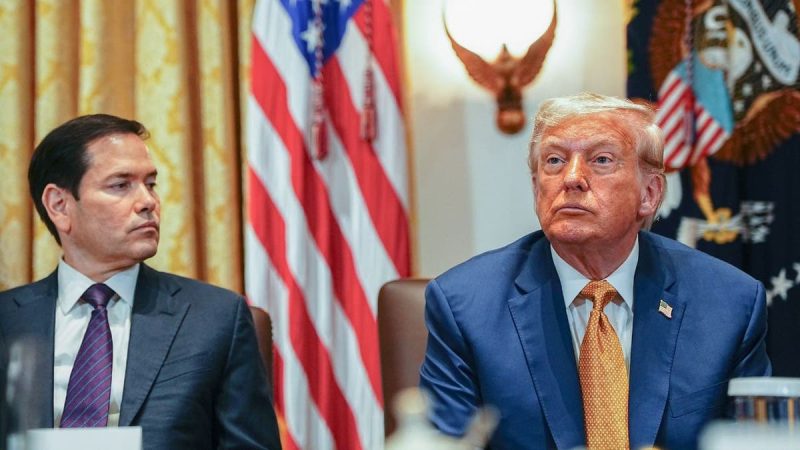
Secretary of State Marco Rubio dismissed speculation that he could be the Republican Party’s 2028 presidential nominee, instead throwing his support behind Vice President JD Vance.
‘I thinkJD Vance would be a great nominee if he decides he wants to do that,’ Rubio said during an interview with Lara Trump that aired on the Fox News Channel Saturday.
Rubio also described Vance as one of his ‘closest friends in politics.’
He went on to commend Vance’s performance as vice president during the segment on ‘My View with Lara Trump’ and made clear he is satisfied with his current role in President Donald Trump’s Cabinet.
‘I want to do this job as long as the president allows me to,’ Rubio added.
Trump appointed Rubio to serve as the nation’s top diplomat shortly after defeating then–Vice President Kamala Harris in the 2024 election. Rubio, previously a Republican senator representing Florida, was among the first confirmed to Trump’s Cabinet.
‘I believe that if I am able to be here, through the duration of this presidency, and we get things done at the pace that we’ve been doing the last six months, I’ll be able to look back at my time in public service and say I made a difference, I had an impact, and I served my country in a very positive way,’ Rubio told Trump.
‘And I would be satisfied with that as the apex of my career,’ he added.
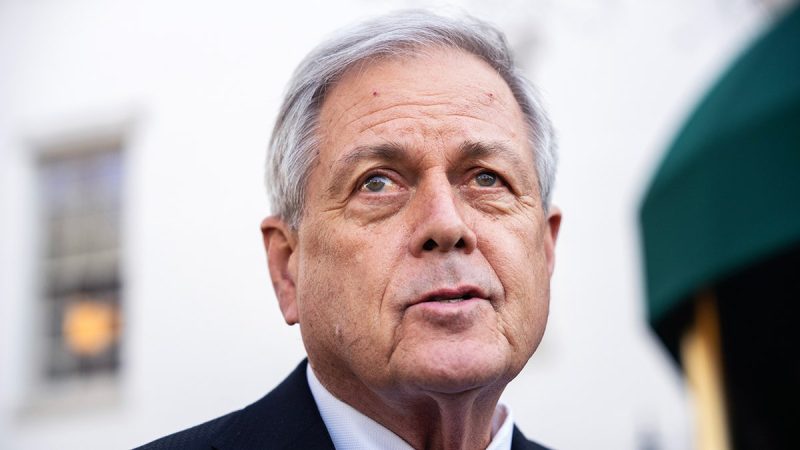
A lawmaker in the conservative House Freedom Caucus is launching his campaign to be governor of South Carolina.
Rep. Ralph Norman, R-S.C., who came to Congress in 2017, kicked off his Palmetto State bid with a Rock Hill campaign rally on Sunday.
‘I am running for governor to shake things up, clean up Columbia, and finally take down the corrupt political establishment once and for all,’ Norman is telling voters, according to prepared remarks obtained by Fox News Digital. ‘I owe nothing to the lobbyists. I owe nothing to the Columbia bureaucratic elite. My allegiance is to you, the people of South Carolina.’
As part of his campaign platform, Norman is promising to establish a Department of Government Efficiency (DOGE) ‘commission’ in the state ‘that roots out waste, fraud, and abuse.’
Norman is also running on the promise of fixing South Carolina’s infrastructure, implementing term limits for state lawmakers, tort reform, and pledging to ‘let the people vote on judges.’
Currently, a majority of state judgeships in South Carolina are decided by the General Assembly. Some positions, including magistrate judges, are appointed by the governor.
Norman is also promising ‘to use the bully pulpit to bring my case directly to the people’ and to ‘use the veto pen.’
His campaign speech also touches on socially conservative goals like advocating for school choice, and restricting school bathrooms by gender at birth.
‘And if that all doesn’t work, I’m telling you now that any so-called ‘Republican’ RINO legislator that doesn’t stand for reforms the people are calling for doesn’t deserve to be in office and we’ll beat them in Republican primaries if that’s what it takes,’ Norman’s speech says.
Norman is joining a crowded Republican primary field with his Sunday announcement. South Carolina Attorney General Alan Wilson, Lt. Gov. Pamela Evette and state Sen. Josh Kimbrell are also in the race.
Meanwhile, Norman’s House colleague, Rep. Nancy Mace, R-S.C., is also said to be considering a campaign for governor.
And in a state that President Donald Trump won by nearly 20 points in 2024, the commander-in-chief’s endorsement – both in the primary and general election – will likely be critical.
Norman pointed out in his speech that both he and Trump have a background in real estate; both men led development companies that were founded by their fathers.
‘We need business leaders – people who have signed both the front and the back of a paycheck. Folks who have built something, taken risks, made money, and yes, lost money too,’ Norman said. ‘Thankfully, we have a great businessman – and fellow developer – back in the White House! Just look what a difference President Trump has made in six months.’
He also cast himself as a disruptor who helped move ‘the needle by making our budget more conservative,’ in reference to the House Freedom Caucus’s push to move Trump’s ‘big, beautiful bill’ to the right.
And while the group was successful in doing that in the House, the Senate watered down several of those wins during its time considering the bill. The Senate version ultimately passed the House, with Norman and other Freedom Caucus members voting in support.
‘Some say I have earned a reputation of being uncompromising, always trying to make a bill more conservative,’ Norman’s speech says. ‘Well folks, I’ll take that as a compliment and I am proud of it.’
As a member of Congress, Norman sits on the House Committee on Financial Services, House Budget Committee, and House Rules Committee.
A longtime ally of former South Carolina Gov. Nikki Haley, Norman was the only House Republican to formally endorse her before Haley dropped out of the race, after which Norman backed Trump.
He told Fox News Digital of his endorsement in January 2024, ‘When I supported Nikki Haley, I had the respect of Donald Trump to call him, and I told him what I was gonna do, and I decided I was going to do it.’
It’s worth noting, however, that Norman had been a vocal supporter of Trump since Haley’s exit – and unlike other House Freedom Caucus allies, he did not incur Trump’s wrath for his loyalty to Haley.
He was most recently at the White House earlier this week with other House Republicans for a reception celebrating their legislative successes.
The South Carolina gubernatorial general election will take place in November 2026.
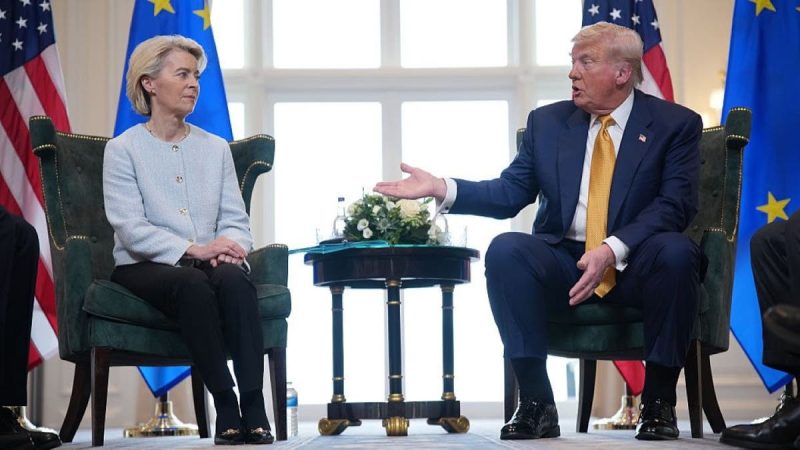
President Donald Trump and European Commission President Ursula von der Leyen announced a trade deal between the U.S. and European Union on Sunday.
The announcement came moments after the two had addressed the media, agreeing that the likelihood of an agreement was about 50-50. Von der Leyen said the negotiations had taken some ‘heavy lifting,’ but the two leaders agreed they were happy with the result.
‘We are agreeing that the tariff straight across for automobiles and everything else will be a straight-across tariff of 15%,’ Trump said.
‘So we have a tariff of 15%. We have the opening up of all of the European countries, which I think I could say were essentially closed. I mean, you weren’t exactly taking our orders. You weren’t exactly taking our agriculture,’ he added, addressing von der Leyen.
Von der Leyen said Europe will also purchase $150 billion worth of U.S. energy as part of the deal, in addition to making $600 billion in other investments into the U.S.
Trump and von der Leyen had sounded unsure of whether a deal would be reached even as they spoke to the press in Scotland on Sunday.
‘We look forward to talking to see if we can do something,’ Trump had said of the negotiations. ‘We’ve had, a very good relationship over the years, but it’s been a very one-sided transaction, very unfair to the United States.’
Responding to a reporter’s question, von der Leyen agreed with Trump that there must be a ‘rebalancing’ of the bilateral trade, which is worth billions of dollars.
‘It is about rebalancing,’ von der Leyen said as she sat next to Trump. ‘You can call it fairness, you can call it rebalancing. We have a surplus and the United States has a deficit, and we have to rebalance it.’
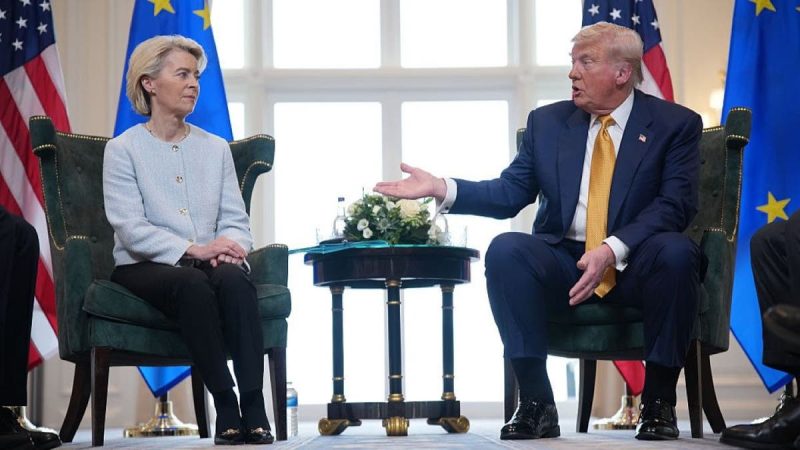
President Donald Trump blasted the European Union for not providing aid to Gaza on Sunday, adding that Israel must ‘make a decision’ about how to handle the region with Hamas still holding hostages.
Trump made the comments while meeting with European Commission President Ursula von der Leyen in Scotland. He said that the U.S. has given millions in aid to Gazans, but claimed there has been no assistance from European countries.
‘We gave $60 million two weeks ago for food for Gaza, and nobody acknowledged it. Nobody talks about it. And it makes you feel a little bad when you do that. And, you know, you have other countries not giving anything. None of the European countries, by the way, gave – I mean, nobody gave but us and nobody said, gee, thank you very much. And it would be nice to have at least a thank you.’
Trump went on to note that a deal needs to be made between Israel and Hamas to end the war and return the last remaining hostages to Israel, despite many of them being dead.
‘But we have a lot of bodies, and the parents want those bodies as much as they would want their child if that child were alive,’ Trump said of the hostages and their families.
He suggested that Hamas is reluctant to make a deal for the final hostages because they feel it would be ‘the end for them’ if they lose leverage against Israel.
‘You know, they had a routine discussion the other day and all of a sudden they hardened up. They don’t want to give them back. And so Israel is going to have to make a decision,’ Trump said.
The meeting comes as the IDF highlighted its efforts to deliver aid into Gaza after restricting the flow in recent months.
Israel is now conducting airdrops for aid throughout the region, and the IDF says it conducted 28 drops in a matter of hours on Sunday.
‘Let me be clear: Israel supports aid for civilians, not for Hamas. The IDF will continue to support the flow of humanitarian aid to the people of Gaza,’ an IDF spokesperson said, claiming Israel transferred roughly 250 trucks full of aid into Gaza this week.
The IDF argues the reports about starvation in Gaza were a false campaign promoted by Hamas, but hunger is spreading across the region after the United Nations and the IDF previously failed to reach an agreement about aid distribution, Fox News’ Trey Yingst reported.
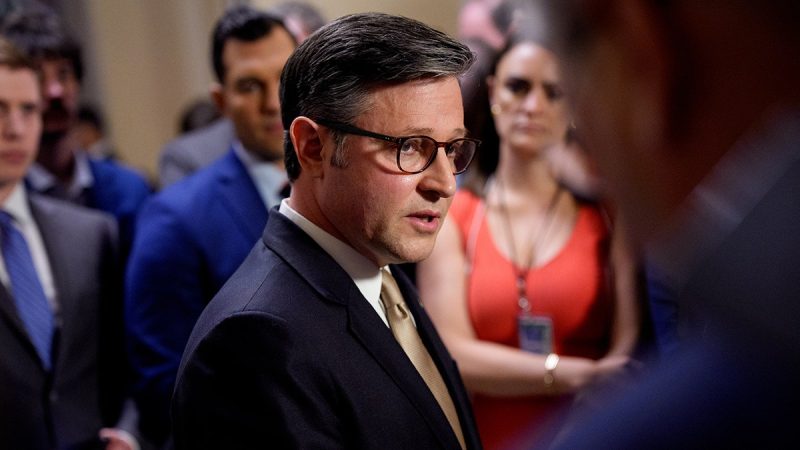
House Speaker Mike Johnson, R-La., said Sunday that Jeffrey Epstein’s former girlfriend Ghislaine Maxwell deserves a life sentence, rejecting the idea of a potential pardon for the convicted sex trafficker.
In an appearance on NBC’s ‘Meet the Press,’ Johnson was asked if he supported a pardon for Maxwell, but the speaker emphasized that the decision ultimately belongs to President Donald Trump.
‘I think 20 years was a pittance,’ Johnson said of Maxwell’s time behind bars. ‘I think she should have a life sentence, at least. I mean, think of all these unspeakable crimes.’
‘I mean it’s hard to put into words how evil this was and that she orchestrated it and was a big part of it, at least under the criminal sanction, I think is an unforgivable thing,’ Johnson added, acknowledging that federal prosecutors identified more than 1,000 victims, many of whom were underage. ‘So again, not my decision, but I have great pause about that as any reasonable person would.’
While leaving the White House on Friday en route for Scotland, Trump was asked if he considered a pardon or clemency for Maxwell. The president left the door open, responding: ‘I’m allowed to do it, but it’s something I have not thought about.’
Johnson said he supports the position of the president, the FBI and the Justice Department that ‘all credible evidence and information’ be released, but emphasized the need for safeguards to protect victims’ identities. As for Maxwell, she was questioned by Deputy Attorney General Todd Blanche at federal prison in Tallahassee, Florida, for two consecutive days last week. Her lawyer told reporters she answered questions on about 100 potential Epstein associates as she angles for clemency.
‘That’s a decision of the president,’ Johnson said of a potential Maxwell pardon. ‘He said he had not adequately considered that. I won’t get in front of him. That’s not my lane. My lane is to help direct and control the House of Representatives and to use every tool within our arsenal to get to the truth. I’m going to say this as clearly and plainly and repeatedly as I can over and over. We are for maximum disclosure. We want all transparency. I trust the American people. I and the House Republicans believe that they should have all this information to be able to determine what they will. But we have to protect the innocent. And that’s the only safeguard here that we’ve got to be diligent about, and I’m insistent upon doing so.’
Johnson criticized a petition for the release of all the Epstein files brought by Reps. Thomas Massie, R-W.Va., and Ro Khanna, D-Penn., as ‘reckless’ and poorly drafted, arguing that it ignored federal rules protecting grand jury materials and ‘would require the DOJ and FBI to release information that they know is false, that is based on lies and rumors and was not even credible enough to be entered into the court proceedings.’
The speaker said the petition also lacked safeguards for minor victims who were subjected to ‘unspeakable crimes, abject evil’ and who risk being ‘unmasked.’ Johnson said Massie and Khanna ‘cite that they don’t want child abuse, sex abuse information uncovered, but they cite the wrong provision of the federal code, and so it makes it unworkable.’ The speaker argued Republicans on the House Rules Committee are committed to a better drafted approach that will protect the innocent.
Asked about a potential pardon for Maxwell, Massie told NBC’s Kristen Welker earlier in the program that it ‘would be up to the president, but if she has information that could help us, I think that she should testify.’
‘Let’s get that out there, and whatever they need to do to compel that testimony, as long as it’s truthful, I would be in favor of,’ Massie said.
Khanna said he did not believe Maxwell’s sentence should be commuted and that he was concerned that Blanche was meeting with her. He said he agreed with Massie that Maxwell should testify but noted she has been indicted twice for perjury.
‘This is why we need the files. This is why we need independent evidence,’ Khanna said.